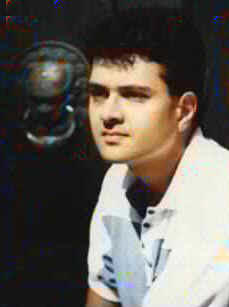Every Creature A Word of God
Christians (who have no problem using secular arguments on non-Christians
when it comes to protecting the unborn), are usually the first to cry "MOVE"
when presented with secular arguments against the killing of animals for
food, clothing, "sport," etc. -- e.g., the eating of meat.
Any Lutherans (or Christians in general) looking for the spiritual dimension
to vegetarianism and animal rights, should read Every Creature a Word of God
by Annika Spalde and Pelle Strindlund. (Vegetarian Advocates Press,
Cleveland, OH, 2008)
"This book is beautifully written and carefully argued. It would be the
perfect book for a Bible study or church study group," writes Stephen Webb,
professor of Religion and Philosophy at Wabash College, and author of Good
Eating and On God and Dogs: A Christian Theology of Compassion for Animals.
The authors, Annika Spalde and Pelle Strindlund, are married antinuclear and
animal activists involved in the Lutheran Church in Sweden. They write:
"This is a book about being Christian in a world shared with other beings.
We do not live here alone. We have brothers and sisters. 'The animals,'
wrote the American monk Thomas Merton (1915-68), 'are the children of God.'
What does a spirituality that affirms God's love for all creatures look
like? That is the central question of this book.
"The animal rights movement is a recent development, but Christian concern
for animals is not. We see it in the stories of medieval monks who helped
hares and deer escape from hunters, and of desert hermits who offered water
to thirsty donkeys. In these pages you will discover the rich history of
animal-friendly living and theology within the Christian tradition...
"This book is a result of years of reflection on our relationship to other
species...over coffee in church halls, fellow worshippers have challenged
us: Haven't we been given animals for our use? Didn't Jesus eat meat? Such
questions have forced us to ask if and how compassion for animals can be an
embodiment of the Christian faith. The book is also an answer to the
question we have received from many of our friends in the peace movement:
How can you focus on animals when so many humans are suffering?"
Annika Spalde is an ordained deacon of the Church of Sweden (Lutheran) and a
founding member of the Swedish Christian Vegetarian Movement. Her work for
nonviolence and justice has included participation in the Trident
Ploughshares campaign to abolish the British nuclear arsenal; organizing
against the Swedish arms industry; serving as an Edumenical Accompanier in
Israel/Palestine; working as an assistant nurse in Paraguay; and living with
homeless at a Catholic Worker house in Duluth Minnesota. Pelle Strindlund
(1971-) holds an MA in Religious Studies and is a founding member of The
Rescue Service, a Swedish animal rights organization.
And in School of Compassion, Deborah M. Jones engages with the Catholic
Church's contemporary attitude towards animals. This is the fullest
sustained study of the subject in that faith tradition. It begins by
exploring the history of the Church's ideas about animals. These were drawn
largely from significant readings of Old and New Testament passages and
inherited elements of classical philosophies.
Themes emerge, such as the renewal of creation in the apocryphal legends, in
the Desert Fathers, and in Celtic monasticism. The spirituality of St
Francis of Assisi, the legal status of animals, and liturgies of the Eastern
Catholic Churches also shed light on the Church's thinking.
The British Catholic tradition - which is relatively favorable to animals -
is considered in some detail. The second part of the book provides a
forensic examination of the four paragraphs in the Catechism of the Catholic
Church which relate particularly to animals. Finally, major contemporary
issues are raised - stewardship, anthropocentrism, and gender - as well as
key ethical theories. The book revisits some teachings of Aquinas, and
explores doctrinal teachings such as that of human beings created in the
'image of God', and, with a nod to the Orthodox Tradition, as the 'priests
of creation'. These help form a consistent and authentically Catholic
theology which can be viewed as a school of compassion towards animals.
Deborah M Jones is general secretary of the international organization
Catholic Concern for Animals and a Fellow of the Oxford Centre for Animal
Ethics, with a doctorate in animal theology. She has also worked as editor
of the Catholic Herald, deputy editor of Priests & People, as a writer and
lecturer, and diocesan adviser for adult religious education.
Go on to: Every Time
Return to: Articles


